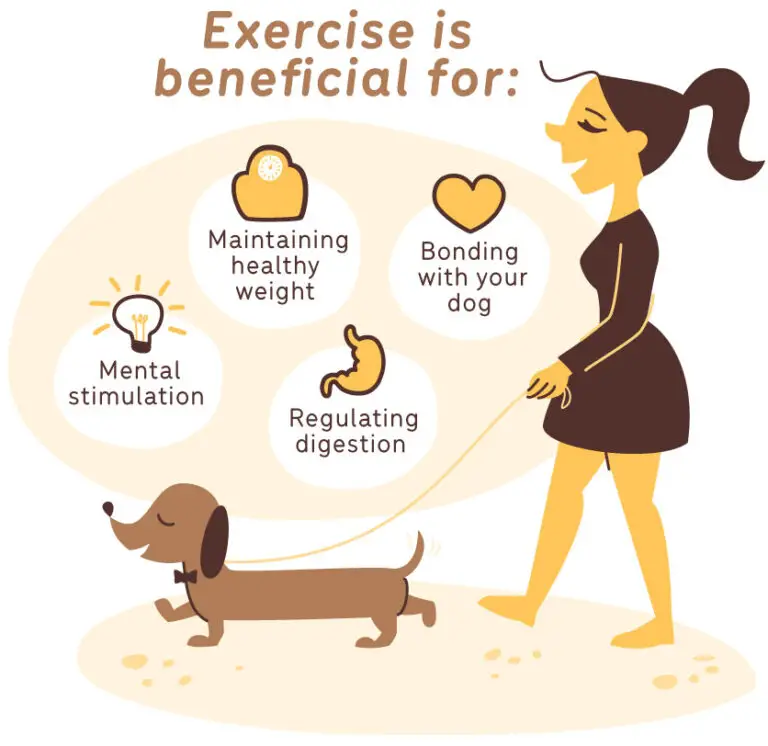The Paws-itive Effects of Balanced Dog Diets: A Comprehensive Guide
Our furry friends aren’t just pets; they’re family. And like any responsible pet parent, ensuring they receive a balanced and nutritious diet is crucial to their well-being. A well-fed dog is a happy dog, complete with a wagging tail and boundless energy that’s ready for adventures. But how do we define ‘balanced’ when it comes to our canine companions’ diets? And what impact does it have on their day-to-day lives? Here is everything every pet lover needs to know about crafting the perfect plate for their four-legged friends.

Understanding the Basics of a Dog’s Nutritional Needs
Just as humans require a variety of nutrients to stay healthy, so do our trusty tail-waggers. Dogs need a combination of proteins, fats, carbohydrates, vitamins, minerals, and water to thrive. Each nutrient plays a pivotal role in maintaining a dog’s health:
- Proteins: Essential for muscle development and repair, as well as supporting the immune system.
- Fats: A concentrated source of energy, necessary for the health of the skin and coat, and vital for certain metabolic processes.
- Carbohydrates: Provide a secondary source of energy and contribute to digestive health.
- Vitamins and Minerals: These micronutrients support numerous critical functions, such as bone health, blood clotting, and vision.
Signs of an Unbalanced Diet in Dogs
It’s not always straightforward to know if your dog’s diet is hitting the mark. However, certain signs can indicate that their nutritional needs are not being met:
- Weight Changes: Rapid weight gain or loss without an increase or decrease in food intake.
- Skin and Coat Issues: Dull coat, excessive shedding, and skin problems can be a result of a poor diet.
- Digestive Problems: Consistent diarrhea, vomiting, or flatulence may indicate a sensitive digestive system.
- Behavior Changes: Lack of energy, irritability, or restlessness could be linked to their food.
The Benefits of a Balanced Diet for Dogs
A balanced diet for your dog is more than just a trend; it’s a crucial part of their overall health. Key benefits include:
- Enhanced Energy Levels: The right diet can provide an optimized energy source that improves vitality and playfulness.
- Weight Management: A balanced diet can help prevent obesity, which is linked to a range of health issues.
- Disease Prevention: Proper nutrition strengthens the immune system, warding off a variety of potential health problems.
How to Achieve a Balanced Diet for Your Dog
Crafting a balanced diet for your dog is about understanding ingredient labels, portion control, and nutritional needs. Here are some practical strategies:
- Choosing the Right Food: Look for high-quality, nutritionally complete dog foods that adhere to AAFCO (The Association of American Feed Control Officials) guidelines.
- Understanding Portion Control: The right amount of food varies by dog size, breed, age, and activity level. Use feeding guidelines as a starting point and adjust based on your dog’s response.
- Incorporating Variety: Include a mix of different proteins, fruits, and vegetables to ensure a broader nutrient spectrum. Variety prevents boredom and can actually encourage better eating habits in your pet.
Special Dietary Considerations for Dogs
Different life stages and health conditions require specialized diets. Understanding your dog’s unique needs is imperative:
- Puppies: Require more calories and nutrients for growth. Look for diets specifically formulated for puppies, such as those with higher protein levels and added vitamins and minerals.
- Seniors: May benefit from foods with lower calorie content and supplements to support aging joints and immune systems.
- Medical Conditions: Some dogs may require diets tailored to manage specific conditions, such as kidney disease or allergies.

Common Myths and Misconceptions About Dog Diets
In the world of pet nutrition, myths abound. It’s important to separate fact from fiction. Here are some common misconceptions:
- Raw Diets are Superior: There’s no concrete evidence that raw diets are healthier for dogs, and they come with significant risks such as bacterial contamination and nutritional imbalances.
- More Protein is Always Better: Dogs need a certain amount of protein, but too much can strain their kidneys. Look for everything in moderation.
- Home-Cooked is Best: While home-cooked meals can be nutritious, ensuring they meet all of your dog’s needs is challenging without professional guidance.
Conclusion
A balanced diet for your dog isn’t just about what they’re eating; it’s about setting the foundation for a long and joyful life together. By understanding their nutritional needs, being mindful of feeding practices, and staying informed about dietary choices, you can give your pup the best possible start in life. Remember, a healthy dog is a happy dog — and a happy dog makes for a delighted pet parent!







